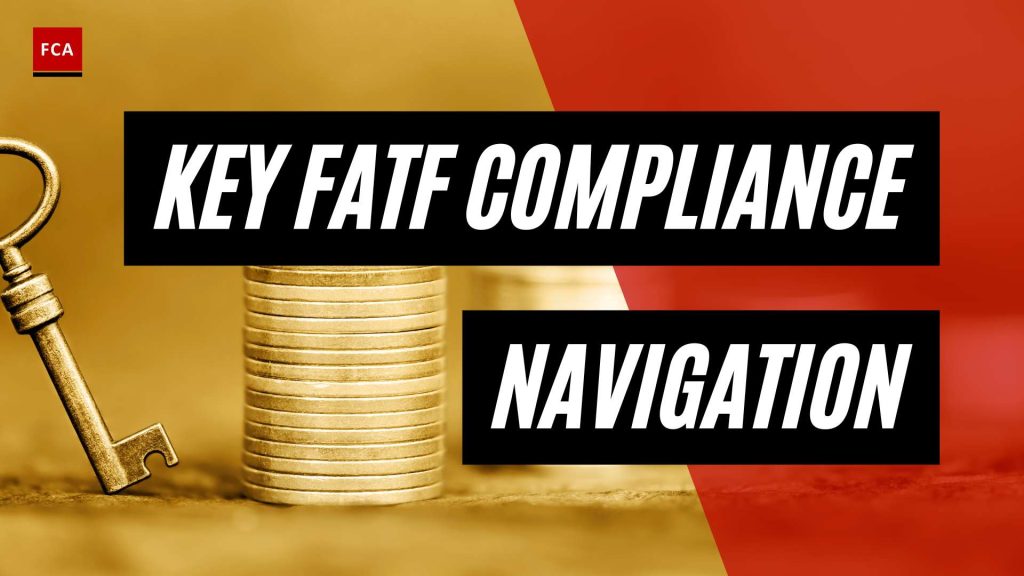Understanding the Financial Action Task Force (FATF)
To effectively navigate the compliance landscape in the fight against money laundering and terrorist financing, it is essential to understand the role and importance of the Financial Action Task Force (FATF). This section provides an introduction to FATF, explores its role in anti-money laundering (AML) regulation, and explains the significance of FATF mutual evaluations.
Introduction to FATF
The Financial Action Task Force, commonly known as FATF, is an intergovernmental organization established in 1989. Its primary objective is to set global standards and promote effective implementation of legal, regulatory, and operational measures to combat money laundering, terrorist financing, and other related threats. FATF operates under the guidance of its 38 member countries and jurisdictions, representing a global network committed to AML efforts.
The Role and Importance of FATF in AML Regulation
FATF plays a crucial role in shaping and influencing AML regulation worldwide. It develops and maintains a robust framework of recommendations known as the FATF Recommendations, which serve as the international standard for AML and counter-terrorist financing (CFT) measures. These recommendations cover a broad range of areas, including customer due diligence, suspicious transaction reporting, record-keeping, and international cooperation.
The significance of FATF lies in its ability to set global standards and encourage countries to align their AML and CFT regimes with these standards. Adherence to FATF recommendations is essential for countries to demonstrate their commitment to combating financial crimes and to maintain the integrity of their financial systems.
FATF Mutual Evaluations Explained
FATF conducts mutual evaluations to assess the level of compliance and effectiveness of member countries in implementing the FATF Recommendations. Mutual evaluations provide an in-depth analysis of a country’s AML/CFT regime, policies, and practices. These evaluations are conducted through a peer review process, where experts from other member countries assess the effectiveness of a country’s AML efforts.
The mutual evaluation process consists of several stages, including a comprehensive review of legal frameworks, regulatory measures, institutional arrangements, and the country’s track record in combating money laundering and terrorist financing. The evaluation team examines a country’s compliance with the FATF Recommendations and assesses the effectiveness of its AML/CFT regime.
The findings of mutual evaluations are crucial for identifying areas of improvement and providing recommendations to enhance a country’s AML/CFT framework. They serve as a benchmark for countries to assess their progress, address vulnerabilities, and implement necessary reforms to strengthen their AML efforts.
Understanding the role and importance of FATF, as well as the significance of mutual evaluations, is fundamental for compliance professionals in staying abreast of global AML developments and ensuring adherence to international standards. It is essential to incorporate the findings and recommendations from FATF mutual evaluations into risk assessments and enhance AML programs based on the lessons learned from other countries’ experiences. By doing so, compliance professionals can contribute to a global AML regime that is robust, effective, and resilient in the face of evolving financial threats.
The Purpose and Process of Mutual Evaluations
To understand the significance of FATF mutual evaluations, it is essential to delve into their purpose and the process involved. Mutual evaluations play a crucial role in assessing a country’s compliance with the Financial Action Task Force (FATF) recommendations and evaluating the effectiveness of their anti-money laundering (AML) and counter-terrorism financing (CTF) regimes.
What are Mutual Evaluations?
Mutual evaluations are comprehensive assessments conducted by FATF to evaluate a country’s AML and CTF frameworks. These evaluations are carried out by an independent team of experts, known as the assessment team, who assess a country’s legal and institutional frameworks, regulatory measures, and operational effectiveness in combating money laundering and terrorist financing.
The purpose of mutual evaluations is to identify the country’s strengths and weaknesses in AML/CTF efforts, assess its level of compliance with the FATF recommendations, and provide recommendations for improvement. These evaluations are conducted in a cooperative and constructive manner, promoting dialogue and collaboration between the assessed country and the assessment team.
Objectives of Mutual Evaluations
The objectives of mutual evaluations are multi-fold. They include:
-
Assessing Compliance: Mutual evaluations aim to assess a country’s level of compliance with the FATF recommendations and the effectiveness of its AML/CTF regime. This assessment enables countries to identify areas where improvements are needed to align with international standards.
-
Identifying Vulnerabilities: By conducting mutual evaluations, potential vulnerabilities in a country’s AML/CTF framework can be identified. These vulnerabilities may include gaps in legislation, weak enforcement mechanisms, or challenges in implementing effective measures to combat money laundering and terrorist financing.
-
Sharing Best Practices: Mutual evaluations provide an opportunity for countries to share best practices and learn from each other. Countries can gain insights into successful approaches implemented by others in areas such as legislation, regulation, supervision, and international cooperation.
Steps Involved in the Mutual Evaluation Process
The mutual evaluation process consists of several key steps that ensure a comprehensive assessment of a country’s AML/CTF regime:
-
Preparation and Self-Assessment: The assessed country prepares a comprehensive self-assessment report, highlighting its AML/CTF measures, legal framework, and enforcement mechanisms. This report serves as a basis for the assessment team’s evaluation.
-
On-Site Visit: The assessment team conducts an on-site visit to the assessed country, where they meet with relevant authorities, stakeholders, and private sector representatives. During this visit, the team gathers additional information, clarifies any queries, and assesses the country’s AML/CTF regime in practice.
-
Assessment Report: Based on the information gathered during the on-site visit and the self-assessment report, the assessment team prepares a detailed assessment report. This report outlines the country’s level of compliance with the FATF recommendations, identifies areas for improvement, and provides recommendations tailored to the country’s specific circumstances.
-
Mutual Evaluation Report: The assessment report is then reviewed and approved by the relevant FATF bodies. Subsequently, a mutual evaluation report is published, providing an overview of the assessed country’s AML/CTF regime, its compliance with the FATF recommendations, and the identified strengths and weaknesses.
Mutual evaluations serve as a valuable tool in assessing a country’s AML/CTF efforts and promoting global cooperation in combating money laundering and terrorist financing. The insights gained from these evaluations contribute to the continuous enhancement of AML/CTF measures worldwide, making the financial system more resilient and secure.
Key Insights from FATF Mutual Evaluations
To gain a deeper understanding of the global Anti-Money Laundering (AML) landscape, it is essential to examine the key insights derived from the Financial Action Task Force (FATF) mutual evaluations. These evaluations play a pivotal role in assessing the compliance of countries with international AML standards. In this section, we will explore the evaluation criteria and methodology employed, the findings and recommendations generated, and the impact of these evaluations on global AML efforts.
Evaluation Criteria and Methodology
FATF mutual evaluations are conducted using a comprehensive set of evaluation criteria and methodologies. These criteria are designed to assess the effectiveness of a country’s AML system and its compliance with the FATF Recommendations. The evaluation process takes into account several key factors, including:
- Legal and institutional frameworks: The adequacy and effectiveness of a country’s legal and institutional frameworks in combating money laundering and terrorist financing.
- Preventive measures: The implementation of measures such as customer due diligence, record-keeping, and suspicious transaction reporting to deter and detect illicit financial activities.
- Financial intelligence and law enforcement: The effectiveness of a country’s financial intelligence units and law enforcement agencies in gathering and analyzing financial intelligence and conducting investigations.
- International cooperation: The extent to which a country cooperates with other jurisdictions in combating money laundering and terrorist financing.
By employing a rigorous evaluation methodology, FATF ensures a standardized and consistent approach to assessing countries’ AML efforts. This allows for meaningful comparisons across different jurisdictions and helps identify areas for improvement.
Findings and Recommendations
The findings and recommendations generated through FATF mutual evaluations serve as valuable insights into the AML efforts of countries around the world. These evaluations provide an in-depth assessment of a country’s compliance with the FATF Recommendations, highlighting both strengths and weaknesses in their AML systems.
Based on the evaluation findings, FATF issues a detailed report outlining specific recommendations for improvement. These recommendations are tailored to address the identified deficiencies and guide countries in enhancing their AML frameworks. They cover a wide range of areas, including legal reforms, regulatory enhancements, capacity building, and international cooperation.
It is crucial for countries to pay close attention to these recommendations and take prompt action to address any identified shortcomings. Compliance professionals should actively monitor and incorporate these recommendations into their risk assessments and AML programs to ensure ongoing compliance with international AML standards.
Impact on Global AML Efforts
The impact of FATF mutual evaluations extends beyond individual countries. These evaluations contribute to the collective efforts in combating money laundering and terrorist financing worldwide. By identifying areas for improvement and providing tailored recommendations, FATF mutual evaluations help raise the bar for AML practices globally.
Moreover, the outcomes of these evaluations have a significant impact on the perceptions and reputations of countries within the international community. Non-compliant jurisdictions may face reputational risks and potential sanctions, such as being placed on the FATF grey list or blacklist. Conversely, countries that demonstrate strong compliance with the FATF Recommendations can enhance their standing and build trust within the global financial system.
The insights derived from FATF mutual evaluations serve as valuable resources for countries, compliance professionals, and other stakeholders involved in the fight against money laundering and terrorist financing. By leveraging these insights, countries can continuously improve their AML frameworks, contributing to a more robust and effective global AML regime.
Case Studies: Lessons Learned from Mutual Evaluations
Examining real-world examples can provide valuable insights into the outcomes of FATF mutual evaluations and the impact on anti-money laundering (AML) efforts. Here are three case studies that highlight lessons learned from recent mutual evaluations.
Case Study 1: Evaluating Compliance in Country X
In the mutual evaluation of Country X, the FATF assessed the country’s compliance with AML regulations and the effectiveness of its AML framework. The evaluation highlighted several strengths, such as the robust legal and institutional framework in place. However, it also identified areas for improvement, including enhancing the implementation and enforcement of preventive measures, particularly in the banking sector.
The evaluation emphasized the importance of coordination and cooperation among relevant authorities and stakeholders to ensure effective AML measures. The findings from this case study underscore the need for continuous monitoring and refinement of AML programs to address emerging risks and maintain compliance with FATF standards.
Case Study 2: Addressing Vulnerabilities in Country Y
Country Y underwent a mutual evaluation that revealed vulnerabilities in its AML regime. The evaluation highlighted gaps in the legal framework, inadequate customer due diligence measures, and limited resources allocated to AML efforts. This case study serves as a reminder that even countries with established AML frameworks may still face significant challenges in effectively combating money laundering and terrorist financing.
Following the evaluation, Country Y took immediate action to address the identified vulnerabilities. It strengthened its legal framework, enhanced customer due diligence requirements, and allocated additional resources to AML initiatives. This case study demonstrates the importance of using mutual evaluation findings as a catalyst for implementing necessary reforms and improving AML measures.
Case Study 3: Progress and Challenges in Country Z
Country Z experienced both progress and challenges during its mutual evaluation process. The evaluation recognized the country’s significant efforts to improve its AML framework, including adopting comprehensive legislation and establishing a specialized financial intelligence unit. However, the evaluation also identified areas where further enhancements were needed, such as strengthening the supervision of designated non-financial businesses and professions.
This case study highlights the ongoing nature of AML efforts and the need for continuous improvement. Country Z’s commitment to addressing the identified deficiencies demonstrates the importance of a risk-based approach to AML and the implementation of comprehensive AML programs.
By examining these case studies, compliance professionals can gain valuable insights into the outcomes of mutual evaluations and the measures taken to enhance AML frameworks. It underscores the significance of staying up-to-date with FATF recommendations and incorporating mutual evaluation findings into risk assessments. These lessons learned can guide organizations in enhancing their AML programs to effectively combat money laundering and terrorist financing.
Implications for Compliance Professionals
Compliance professionals play a critical role in ensuring that organizations adhere to the guidelines and regulations set forth by the Financial Action Task Force (FATF). FATF mutual evaluations provide valuable insights that can help professionals enhance their anti-money laundering (AML) programs and mitigate risks. Here are some key implications for compliance professionals to consider:
Importance of Staying Up-to-Date with FATF Recommendations
FATF regularly updates its recommendations to address emerging money laundering and terrorist financing risks. Compliance professionals must stay informed about these recommendations to ensure their organizations remain compliant. By regularly reviewing and incorporating the latest FATF recommendations into their AML programs, professionals can adapt to evolving regulatory requirements and mitigate potential vulnerabilities. Stay updated with the latest FATF recommendations by visiting our article on FATF Recommendations.
Incorporating Mutual Evaluation Findings into Risk Assessments
Mutual evaluations provide in-depth assessments of a country’s AML framework, identifying strengths, weaknesses, and areas for improvement. Compliance professionals should carefully review the findings from mutual evaluations and incorporate them into their organization’s risk assessments. By understanding the specific vulnerabilities highlighted in these evaluations, professionals can tailor their risk mitigation strategies to address the specific challenges faced by their organization and the jurisdictions in which they operate.
To effectively incorporate mutual evaluation findings into risk assessments, professionals should consider factors such as the level of compliance in different jurisdictions, the presence of high-risk areas, and the effectiveness of regulatory oversight. By aligning risk assessments with the insights gained from mutual evaluations, professionals can enhance their organization’s overall risk management framework.
Enhancing AML Programs Based on Lessons Learned
Mutual evaluations often highlight best practices and lessons learned from various jurisdictions. Compliance professionals should carefully analyze these insights and apply them to their own AML programs. This process involves identifying gaps between the organization’s current practices and the best practices outlined in the mutual evaluations.
By adopting lessons learned from mutual evaluations, compliance professionals can enhance their AML programs, strengthen internal controls, and improve overall risk management. This may involve implementing more robust customer due diligence procedures, enhancing transaction monitoring systems, or strengthening internal reporting mechanisms. By aligning AML programs with the recommendations and lessons learned from mutual evaluations, professionals can effectively combat money laundering and terrorist financing risks.
In conclusion, compliance professionals must recognize the significance of staying up-to-date with FATF recommendations, incorporating mutual evaluation findings into risk assessments, and enhancing AML programs based on lessons learned. By doing so, professionals can contribute to the global efforts in combating money laundering and terrorist financing, ensuring the integrity of the financial system. Stay informed about FATF developments and related topics by exploring our articles on FATF Grey List, FATF Money Laundering, and FATF Virtual Assets Guidance.









